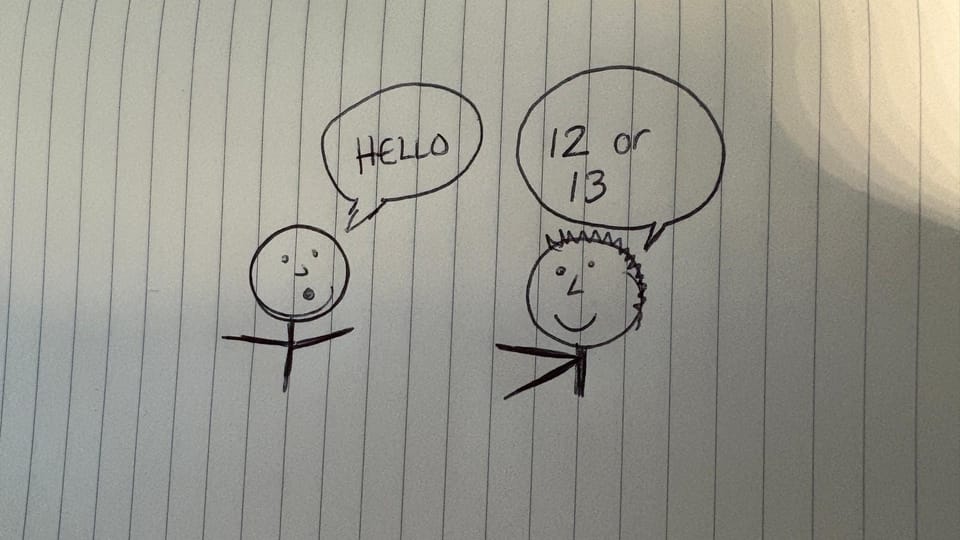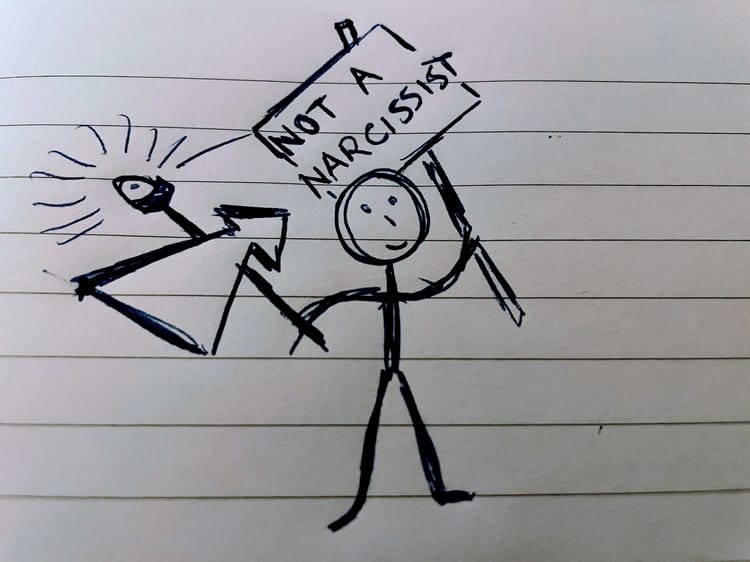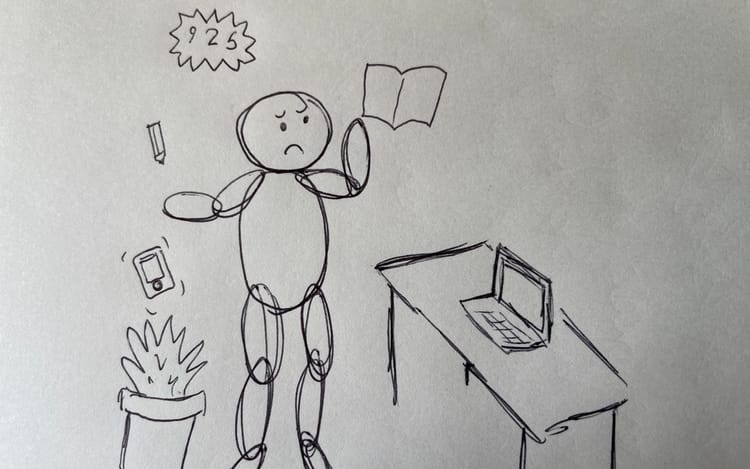When Workplace Miscommunication Feels Personal

I’m going to set out a scenario for you. You trying to talk to someone about a project. They don't take your thoughts on board and carry on the way that they were going. Problem is, your point was really important, and now needs to be taken into account later in the process, which is embarrassing for all involved.
Eventually, you close off communications because you think that person isn't listening to you or taking your ideas seriously.
If they don’t respect you, then what’s the point of working with them? Days pass….Then, as part of another conversation (maybe about the new Spiderman movie) they turn around and say, "Oh, I'm sorry, I missed that email from you. There was just so much going on that day I didn’t have time to check my emails."
This week's newsletter bought to you by Schitt's Creek GIFs.

I’ve seen this happen loads at work. It's really easy for us simple, worried, insecure humans to take any kind of miscommunication or potential slight as a conspiracy against us.People are busy. Always. Especially when there’s lots of pressure. What might present as rudeness is often busyness. Sure, it’s annoying, and it stops people from collaborating, but it’s nothing personal.
This is something that comes up as a big issue for people at work. There are, however, some things you can do to limit the impact and make sure you keep things running as smoothly as possible.
If you find this newsletter interesting or useful, please do consider signing up, or recommending me to someone who would also find it useful.
Keep Talking
Keep lines of communication open at all times. If somebody's not talking to you, that’s on them. But think about varying how you talk to them. Do you always send emails? Then try booking in a phone call, or a chat over coffee.
It’s amazing how coffee (or tea) gives people a chance to break away from the desk and acknowledge each other.
Getting them to talk to you is half the battle, though. You need to ensure that they know you're a partner and collaborator rather than somebody they need to manage.
You want them to be as open as possible with you, and you also want to give them as many opportunities as possible to feel like they can reach out if they've got a question or a problem.
Think of yourself as the person they come to when things get tricky, not the person they hide from when you send them a massive email.
Remember: People Are Trying Their Best

I always try and remember this simple point at all times. People are, in general, trying their hardest. There are exceptions, of course, but people as a whole want to do a good job and they want to work hard. They don't want to annoy you and they don't go to work to make enemies.
So, if you’ve been ignored or slighted, take a moment to think about it. Instead of complaining and huffing and closing off, think about it from their perspective. If you were them and you were as busy as they are, would you be doing the same thing? Would it be understandable if you did?I’ve seen a lot of people complain about someone’s way of working, only to do a pretty good job of copying it when they get busy!
I have a rule: never assume conspiracy when incompetence or busyness can explain the same outcome. I always assume incompetence or busyness before I think I've been deliberately ignored. The amount of workplace disagreements I've managed to avoid by thinking this way...
I've actually lost count.
I see other people sometimes get themselves worked up and stressed about something that's later revealed to be just a big misunderstanding.
Are you actually being useful?
Have a look at the points you raised and were ignored. In a high pressure environment, were they mission critical? Is it possible that you suggested something that was a nice to have, rather than a necessity?
I always assume that my contributions are the most important contributions since contributions began being contributed.
But sometimes someone just needs to step in and say, it’s a good idea, but it’s not essential. Also, Phil, you said contributions too many times.
So have a look and analyse the things you sent in. Was it really that important? This is difficult, so by truthful and don’t beat yourself up if you decide that, in hindsight, maybe your points were as important as you thought.
The Long Game
It's also important to remember that workplace difficulties don't resolve themselves overnight. You're going to need patience and perseverance to help someone who may be struggling with capacity to engage with you properly.
You shouldn't be worried about this. You shouldn't expect overnight results, and you shouldn't be too hard on yourself.
Relationship management is a long-term game. It's very rare that one interaction or one discussion will fix everything. It's about consistent, patient effort over time.
The Conclusion
Think of workplace relationships like tending a garden. You can't plant seeds today and expect flowers tomorrow. But with consistent watering, a bit of patience, and the right conditions, something good will eventually grow.
The alternative - assuming everyone's out to get you - is like salting the earth. Nothing grows there, and you end up isolated and frustrated.So next time someone misses your email or doesn't seem to be listening, take a breath. Assume positive intent. Keep those lines of communication open.

Most of the time, they're just as overwhelmed as you are.
Having trouble with workplace relationships or communication? Get in touch for a free initial chat about how coaching might help.






Member discussion